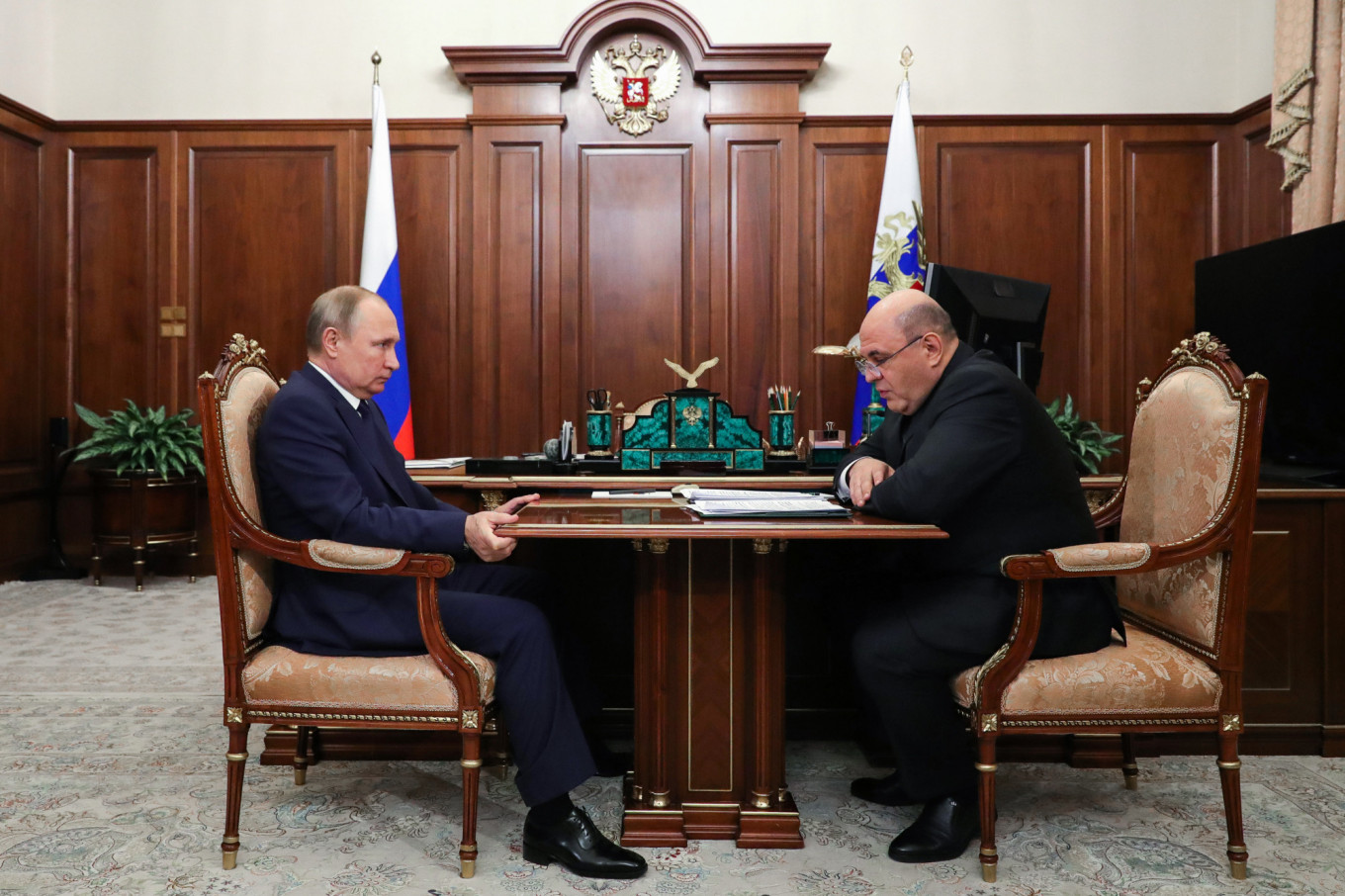
Mikhail Mishustin, President Vladimir Putin’s surprise choice to become Russia‘s prime minister, is a tax chief with almost no political profile who analysts say could be a “technocratic placeholder.”
The Kremlin-dominated lower house of parliament, which rarely opposes Putin on important issues, is due to decide whether to approve Mishustin on Thursday.
Mishustin, 53, has been the head of the Federal Tax Service since 2010 and has worked in government roles related to tax collection since the early days of his career.
He has won praise for improving tax collection processes and more than doubling tax revenues in the past decade, with 20.4 trillion rubles ($331.92 billion) collected in the first 11 months of last year.
The majority of those revenues still come from taxes on the vast energy sector but an increasing share now comes from other forms of taxation after an efficiency drive.
Despite these successes, Mishustin’s name had not appeared in many lists of potential candidates for the post.
“Mishustin does not have any political experience or popularity with the electorate, and is not part of Putin’s inner circle,” Tatiana Stanovaya, nonresident dcholar at the Carnegie Moscow Center, wrote on social media.
She said Mishustin would be unlikely to run in the presidential election due when Putin’s fourth term ends in 2024, adding: “(It) seems highly likely that Mishustin is just a technocratic placeholder.”
Russia has had technocrats as prime minister before, including when Putin was cementing his grip on power after 2000.
“(Mishustin) looks a lot like the technocratic premiers… of the early 2000s,” Stanovaya said.
Ice hockey and engineering
Dmitry Medvedev, a Putin ally, stepped down as prime minister on Wednesday, making way for constitutional changes which would give Putin scope to extend his hold on power after leaving the presidency. Putin also suggested diminishing the powers of the presidency and beefing up those of the prime minister.
Like Putin, Mishustin enjoys ice hockey and is on the boards of CSKA Moscow ice hockey club and the Russian Ice Hockey Federation.
An engineer by training, Mishustin joined the government tax service in 1998 and spent five years as a deputy tax minister from 1999 to 2004.
Market participants credit a background in the tech sector for his success in bringing taxation in Russia into the digital age. Payments for both individuals and businesses have become simpler and a predominantly online process.
Digitalization has also led to a drop in tax evasion and a reduced role for the shadow economy, with many small and medium enterprises beginning to pay taxes.
Mishustin told the Vedomosti business daily in 2018 he did not see a return to the private sector.
“But if destiny chooses a different path for me, I would work in innovations, with new technologies, in the same field as I have always worked: transformation, related to the digital economy,” he said.
